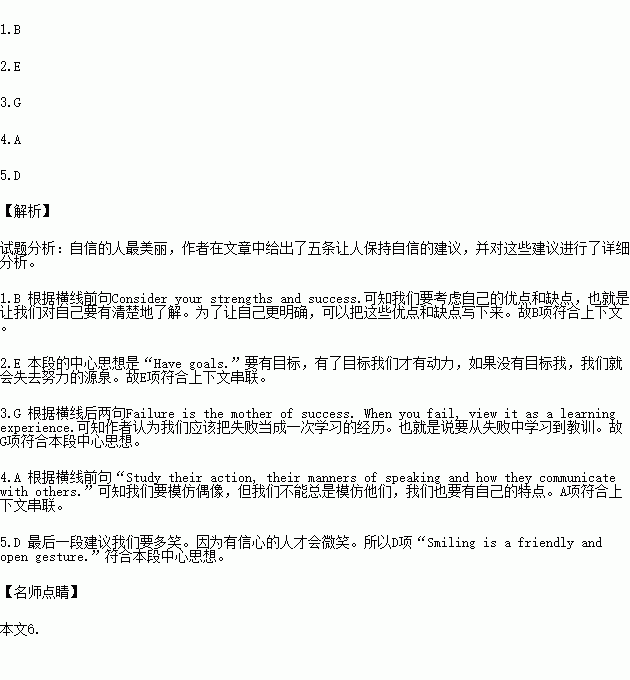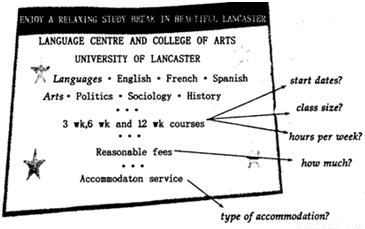题目内容
The beauty of confidence is that it is possible to learn it, no matter who you are! Follow these simple steps to be confident.
Consider your strengths and success.__ 1.___. When have you helped others? What are you good at? When have you taken pride in yourself ? What are you working hard for? If you have difficulty thinking of your strengths and success, ask your family members or a close friend.
Have goals. Sitting around and doing nothing will make you feel worse. Start with a small goal.__ 2.___. You’ll get more confidence achieving a small goal. Once you’ve achieved many smaller goals, you can set bigger goals.
___3.__. Failure is the mother of success. When you fail, view it as a learning experience. Often we have to fail on our own to gain experience. By failing, you have at least taken a chance.
Pick a role model. Pick a role model that is always confident and always learn from them. Study their action, their manners of speaking and how they communicate with others. __4.__. However, it’s a great place to start.
Smile. Confident people smile often, and without much reason. ___5.___. It tells the people around you that you’re comfortable in yourself and enjoying your time.
A. Of course you don’t want to spend your entire life copying someone else.
B. If possible, write them down so that you can look back at them later.
C. Start projecting a more powerful you today.
D. Smiling is a friendly and open gesture.
E. Otherwise, you’ll get discouraged.
F. After reaching a goal, reward yourself.
G. Learn from failure.


